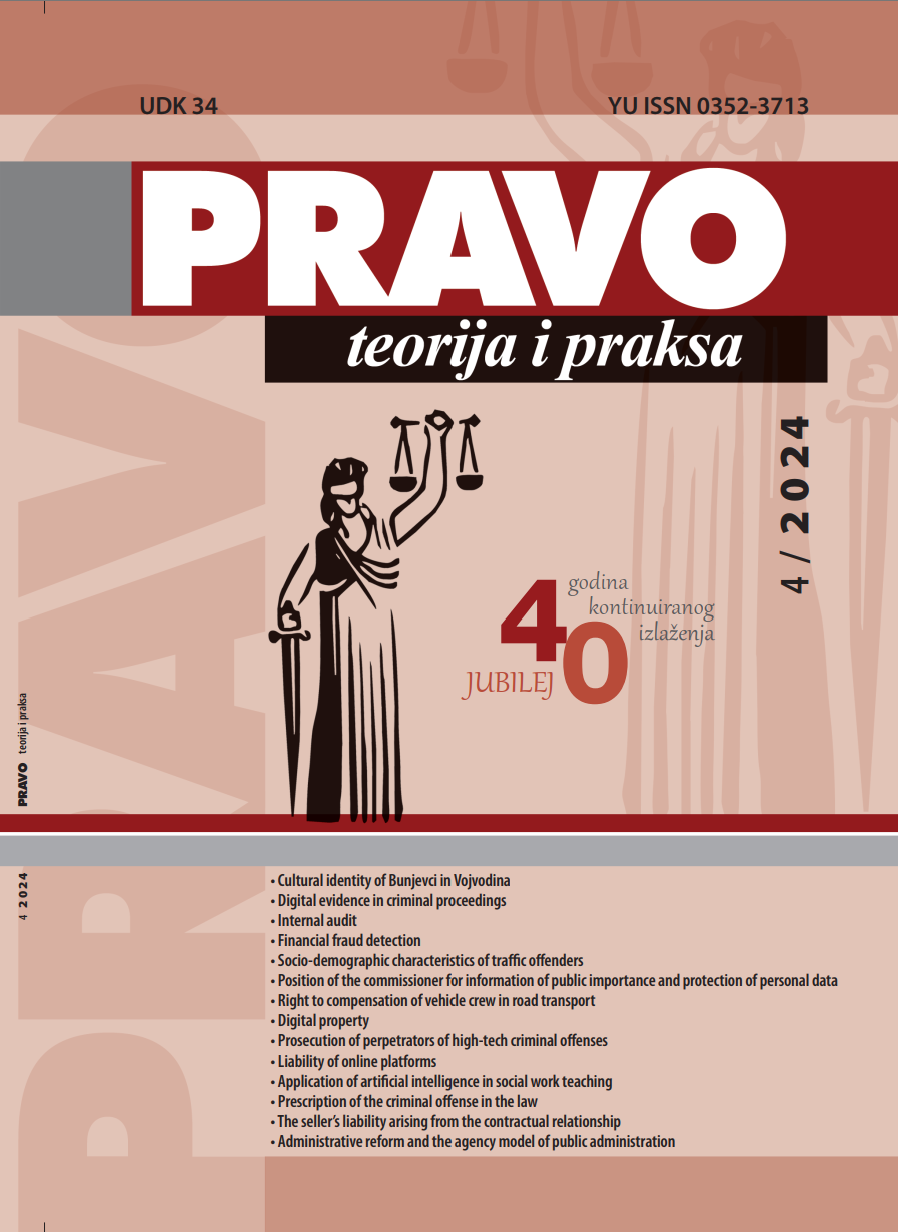INTERACTIONS BETWEEN REGULATIONS, LAW, NEW TECHNOLOGIES, AND ORGANIZATIONAL POLICIES IN FINANCIAL FRAUD DETECTION – A CASE STUDY OF SERBIA
INTERACTIONS BETWEEN REGULATIONS, LAW, NEW TECHNOLOGIES, AND ORGANIZATIONAL POLICIES IN FINANCIAL FRAUD DETECTION – A CASE STUDY OF SERBIA
Author(s): Aleksandar Đorđević, Boris Jevtić, Stevica DeđanskiSubject(s): Criminal Law, Commercial Law
Published by: Pravni fakultet za privredu i pravosuđe u Novom Sadu
Keywords: Digitization; legal framework; financial fraud; artificial intelligence; company policy
Summary/Abstract: Digitization has led to the emergence of increasingly sophisticated forms of financial fraud, necessitating more advanced and integrated approaches for their rapid detection and prevention. This challenge prompted the authors to examine relevant literature and analyze current policies and measures for detecting financial fraud within the digital environments of organizations, with the aim of enhancing proactive prevention strategies. To this end, an online empirical survey was conducted with 118 executives and managers from Serbia during the first half of 2024, supported by the Association of Employers of Serbia and the Association of Managers. The research focused on the impact of new technologies, particularly AI, on the regulations and organizational policies related to financial fraud detection. Qualitative research, which utilized 12 predefined statements within each impact group using a five-point Likert scale, provided insights into the actual experiences and perspectives of participants concerning financial fraud as a distinct business, social, and economic issue. Multiple correlation approaches were employed to analyze the data. The outcomes suggest that all analyzed factors contribute to addressing financial fraud, with new technologies – especially those based on artificial intelligence – and corporate policies and strategies playing significant roles. Conversely, regulations have a lesser impact, attributed to their correctness, implementation, and enforcement. These findings enhance the understanding of the significance of taking a comprehensive approach to combating fraud, corruption, and financial crime, and highlight the roles of continuous technological advancements, employee digital education, and enhanced communication with the public and investors in building trust and maintaining a company’s reputation.
Journal: Pravo teorija i praksa
- Issue Year: 41/2024
- Issue No: 4
- Page Range: 48-68
- Page Count: 21
- Language: English

